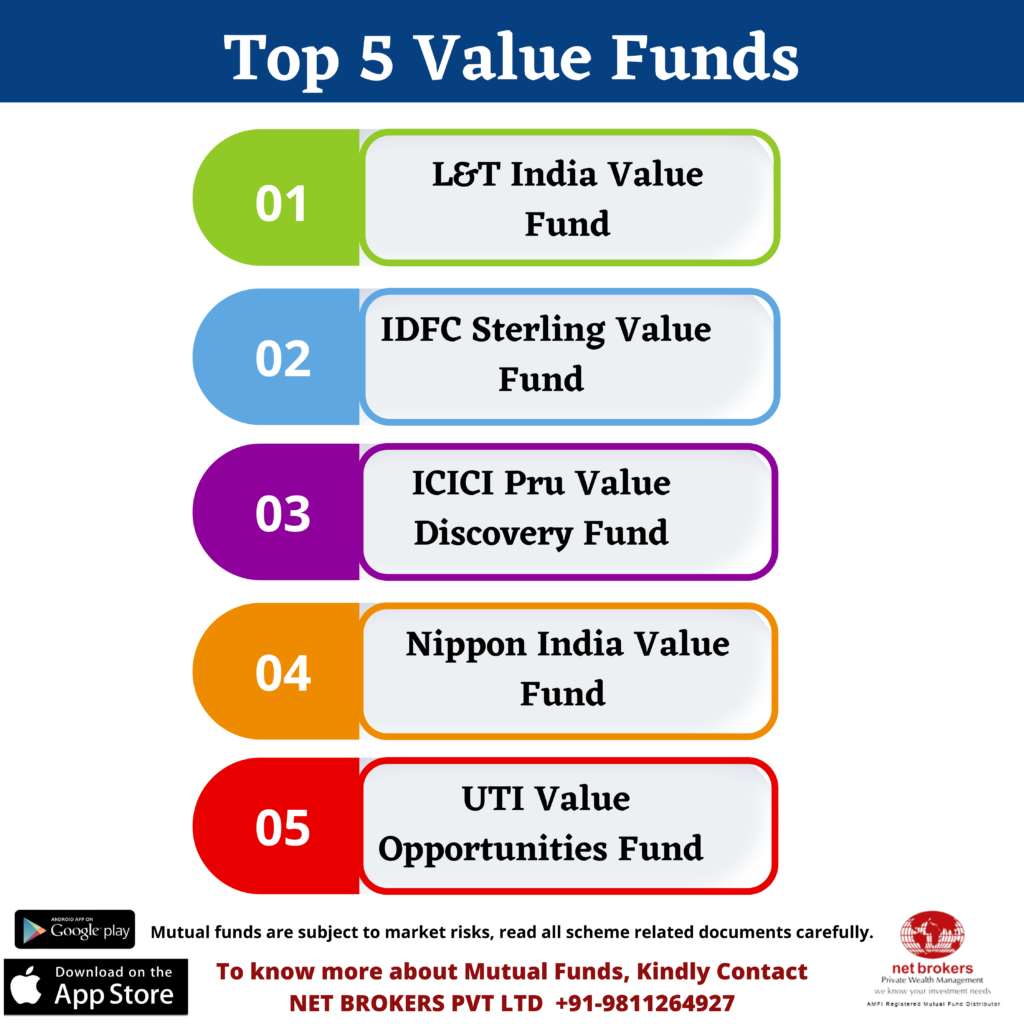Understanding Value Funds
By Akhil Chugh
Date September 11, 2021
Mutual funds use various strategies to grow wealth. Some funds choose to invest in tried and tested large-cap stocks while others choose to invest in high-quality debt and fixed income securities.
But certain mutual funds stand out for their unique investment approach and unorthodox strategies. One of them is the Value fund!
The well-known phrase, “If you can’t handle me at my worst, you don’t deserve me at my best”, very well applies to a Value fund. In this blog, we’ll help you understand the underlying principles of a Value fund.
What are Value Funds?
A Value Fund is designed around a unique investment strategy known as “Value Investing”, popularized by legends like Warren Buffet. The strategy revolves around selecting stocks that are fundamentally undervalued in price.
When an investor (or a fund manager) adopts a value investing strategy, he looks for stocks that are undervalued and trade for less than their respective intrinsic values. The assumption is that these stocks are undervalued due to deficiencies in the market or investor ideology. Value fund managers are able to identify inefficiencies in these markets.
Theoretically, once these inefficiencies are corrected by the market, the value investor will gain from a share price increase.
There are many companies in the market whose stock price is not the true indicator of their worth. They are intrinsically more valuable and have a lot of potential to grow.

Therefore, a Value fund is an equity fund that invests in stocks of companies having ‘value’. Value fund invests in multiple companies that have long-term potential but are currently flying under the radar.
According to SEBI (Securities & Exchange Board of India), a Value fund is an open-ended equity scheme that follows a value investing strategy with a minimum investment of 65% in equity and equity-related instruments.
Many people are under the assumption that value investing means buying cheap stocks or penny stocks. But this is not true. Most Value funds have diversified portfolios with a significant presence of both large and mid-cap companies in their portfolios.
Features of a Value Fund
- Equity fund that invests across all market caps
- Invest in undervalued stocks with future potential to grow
- Offers a high dividend yield
- A long-term investment option to generate returns
- Heavily relies on judgement of a fund manager
Who Should Invest in Value Fund?
- Seasoned investors who understand macro trends.
- Investors with moderate to high-risk appetite who are ready to take selective bets for higher returns.
- Investors with a long-term investment horizon as a Value fund relies on the future potential of undervalued stocks.
Past SIP Performance of Top Value Funds
Based on our analysis and research at Net Brokers, below mentioned schemes are currently the best schemes in the Value fund category. These funds fare well on quantitative and qualitative parameters and have the potential to deliver superior growth in the long run.


Key Takeaways from Net Brokers:
- Value Funds are for long-term investments only – If a stock is undervalued, it is possibly because of being a cornered stock. It could take years for the market to realize a company’s true potential. Thus, for short-term gains, Value funds are not exactly ideal.
- While Value funds have a lower downside due to their investment in undervalued stocks, they can still be susceptible to value trap. The anticipated turnaround may never come forcing the fund to sell off the investment at lower or sub-optimal prices. Thus, Value funds are suitable for investors with high-risk appetite.
- Even if you are an aggressive investor, the exposure to these funds should be restricted to under 15% of your portfolio as they can be volatile at times.
- Investors should stay invested in Value Funds for at least 7 years to derive the maximum benefit from the entire investment cycle.
Before picking the Value fund, investors should ensure that the scheme is aligned with their investment objective, risk appetite & personalized asset allocation plan.
For more information, get in touch with us today!
Download our mutual fund app & start investing in different mutual fund schemes to attain your long-term financial goals.
Happy investing!



